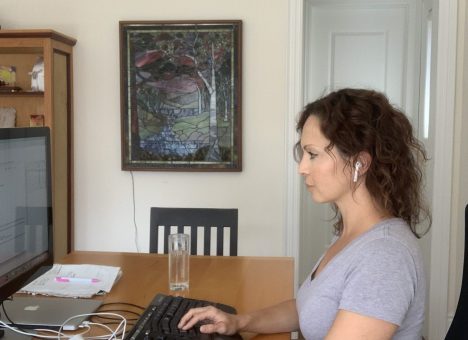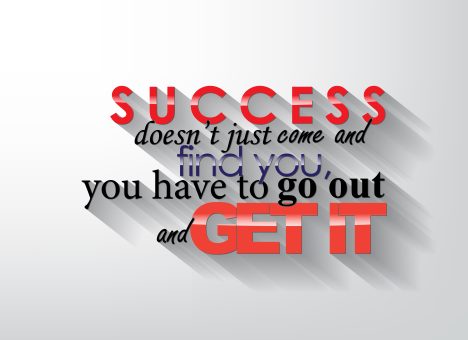At the end of the day, good people want to do business with good people. You’re a good person who runs a business. How can you make sure that your prospective and existing clients know that you’re good?
Be your authentic self
This is the most important part.
I remember in the early days of my self-employed career, I was so adamant about being professional. Speaking with very sophisticated language, acting serious, only wearing my “all-business” hat, never writing too casually in an email…
I still place great weight on professionalism today, but I’ve also realized something important over the years. Showing my clients my personality can only ever be a good thing. Taking professionalism too far, to the point that you’re not letting out your true personality, can actually work against you. Now, I find that I’m more of my true self than ever before throughout all aspects of my business. Sometimes that means I crack a joke, let myself say “haha” in an email if my client types something witty, listen closely and give personal insights, and share experiences and stories where relevant.
This enables my clients to better relate to me, which opens the doors to a much richer working experience.
Transparency
Be transparent and open – all the way.
- Tell your clients how you like to work.
- Explain your process and why it’s important.
- If you get stuck, speak up and get clarification or guidance.
- Bad news? Out with it – and right away.
- Think the fit isn’t quite right? Say it before the project starts.
- Believe they don’t really need you? Don’t just try to get the business, be honest and say why.
When your clients feel that you’re telling them everything and not hiding information, they get the sense that they can trust you. And genuine trust in a working relationship is something you simply cannot put a price tag on.
Keep in touch
One of the worst things you can do is leave your clients in the dark. Think of yourself in any business transaction, and more specifically, remember a time when you had a question for a provider and weren’t sure when you might get an answer or result. It’s frustrating.
In your business, think of typical process-like questions your clients are bound to have and answer them before your client asks. For example, in my business, one of the biggest questions is usually, “When can you have this done?” So, once I have all the information I need in order to start writing, I always ask, “By when do you need this complete?” And if it’s a matter of revisions, I always confirm receipt and then immediately tell them when they can expect to hear back from me.
My process is outlined crystal clear before full engagement takes place so my clients have a step-by-step view of what is to come.
The takeaway
When we boil it all up, what we get is this:
Be real and communicate.
Ding! There’s your connection.






